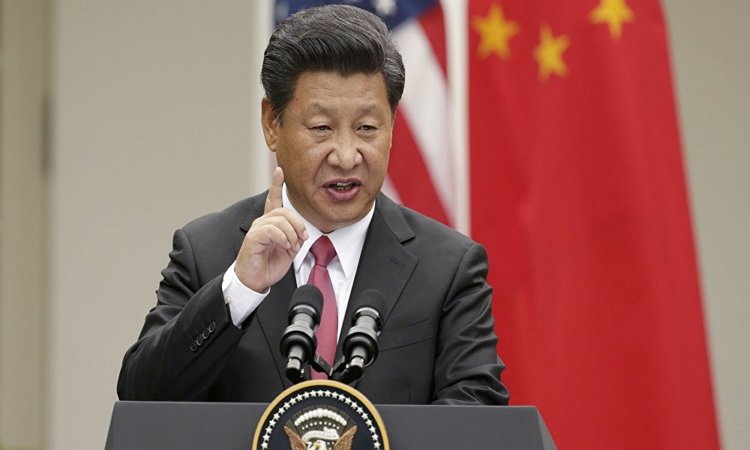A Chinese based religious rights monitoring group has accused the Chinese government of carrying out a harrowing persecution of Christianity in Beijing and other provinces across the country.

The group further accuses the Chinese communist government of destroying crosses, burning bibles, shutting churches and ordering adherents of the Christian faith to sign papers renouncing their faith.
The campaign supposedly coincides with a new government policy on religion that seeks to “Sinicize” religion by demanding loyalty to the officially atheist Communist Party and eliminating any challenge to its power over the lives of Chinese citizens.
A Chinese Aid Group based in the United States said the closure of churches in central Henan province as well as a very prominent house church in Beijing in recent weeks represents the growing intensity and accuracy of the crackdown on Christianity in China.
The spokesperson of the Aid Group, Bob Fu said’
“The international community should be alarmed and outraged for this blatant violation of freedom of religion and belief”
He further explained that under the current leadership of President Xi Jinping, China’s most powerful leader in modern history since Chairman Mao Zedong, religious freedom has shrunk drastically despite China’s seeming religious revival.
Reports from religious rights groups in the country say President Xi Jinping is waging the most disastrous war against Christianity in China since 1982 when religious freedom was guaranteed in the Chinese constitution.
Bob Fu further alleged that in a radical move that had not been seen since the days of Chairman Mao’s Cultural Revolution of 1966-76, President Xi had ordered officials to burn piles of seized bibles.
Read: We want more Nigerians to get our visas — China
Adherents of Christianity were also forced to sign forms stating that they had renounced Christianity; those who refuse are being denied state welfare benefits and students are being expelled from government schools.
Another witness to the religious persecution, a Christian pastor in the Henan city of Nanyang who pleaded for anonymity for fear of further persecution said crosses, bibles and furniture were burned during a raid on his church on Sept. 5.
According to him, people started trooping in to remove church items as soon as it opened its doors at 5am.
Prior to that, local provincial authorities had demanded that the church ‘reform itself’ and discussions were supposedly still ongoing as to the meaning of the word ‘reform’.
Under Chinese law, adherents of all religions are expected to worship in registered religious houses. Several million Chinese Christians however belong to house churches or underground churches as they are called by the Chinese government because they often defy government attempts at regulating Christianity in the country.
The largest church in Beijing, Zion church was shut on Sunday by 60 government workers who arrived in buses, police cars as well as fire trucks according to its pastor Ezra Jin Mingri,
ALSO READ: China bans dozens of Islamic names as Baby Names
The invading officials promptly declared that gatherings at the church was illegal and sealed off the church property; they also froze pastor Ezra’s personal assets as a means of coercion. They later went ahead to announce that the Zion church had been closed because it did not register with the Chinese government
Speaking in defiance, however, he said;
“Churches will continue to develop. Blocking the sites will only intensify conflicts” as he spoke to Associated Press reporters by phone.
Christianity is not the only religion in China being attacked by the Chinese government. An estimated 1 million Uighurs, as well as other members of Muslim minority groups in the country’s northwest, have been arbitrarily detained in indoctrination camps where they are forced to denounce Islam and profess loyalty to the Communist Party.
As expected however, Chinese officials have disputed the claims saying the Chinese government respected religious freedom but the step it is taking is necessary in order to eliminate religious extremism in the country.

